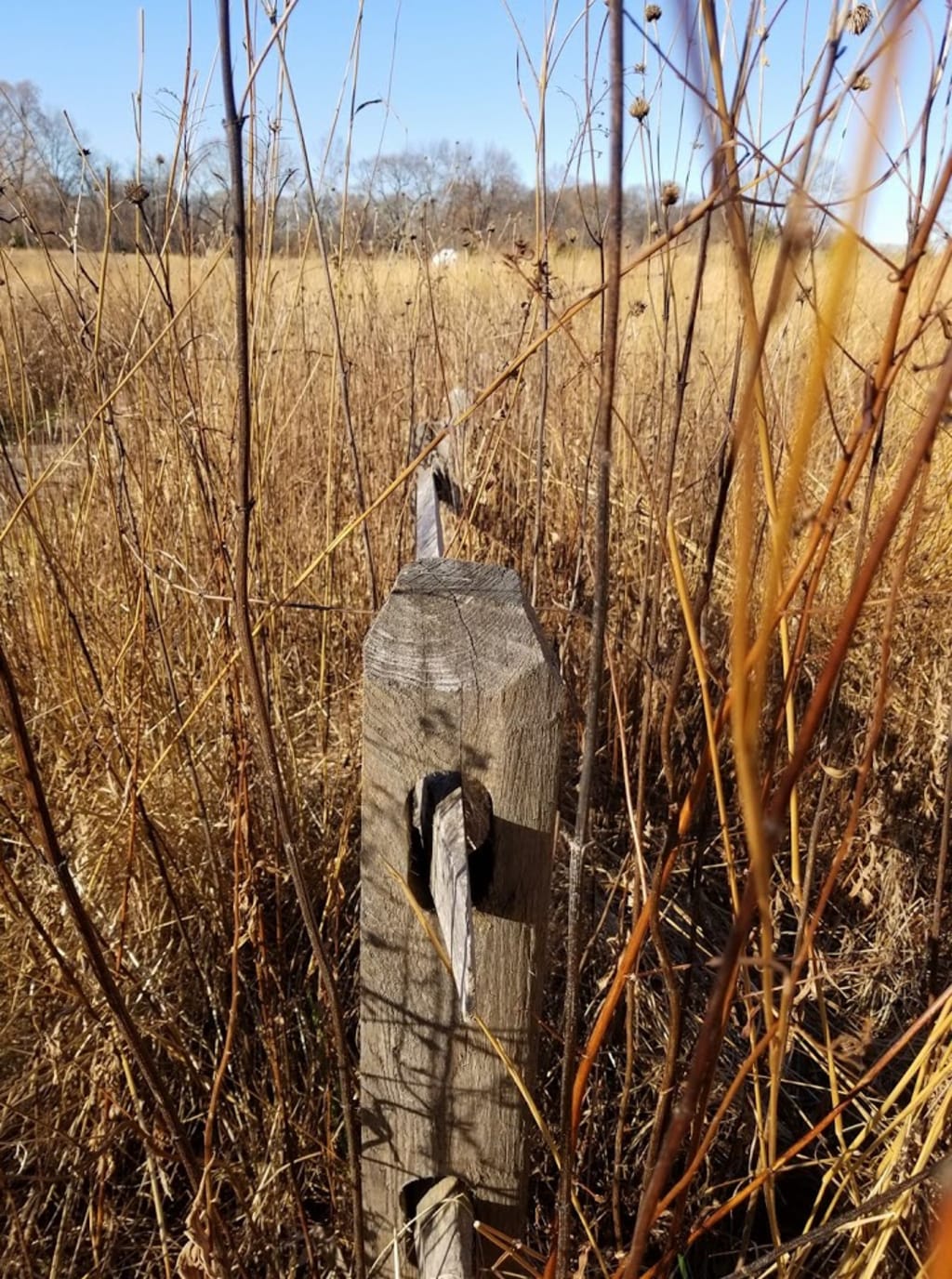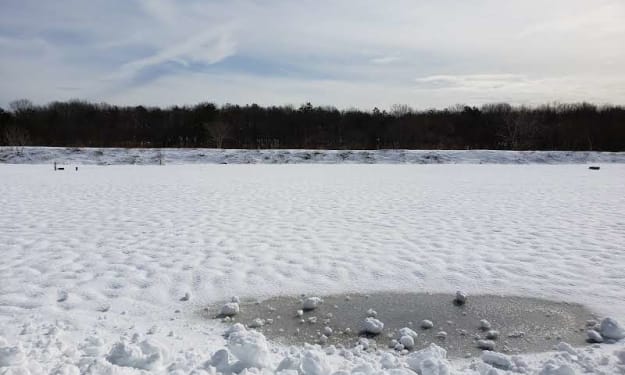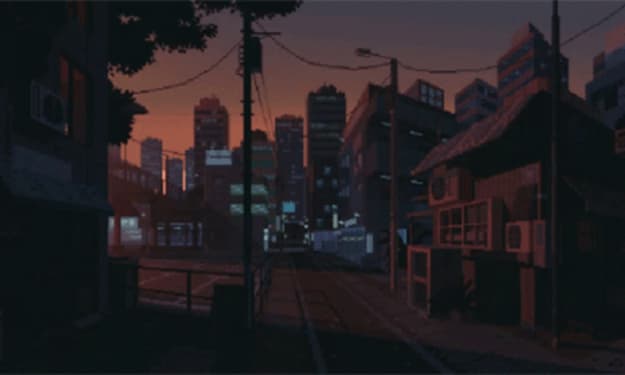The Decay of the Farm
Circle of Life

Old Man Jack's yellow recliner sat at the entrance of the red barn on the back of the property. Like Jack, the recliner was also very old, with fabric pilled and pulled along the back and arms from years of lingering in the elements. I was often tempted to call him "Uncle Jack," because I had an Uncle Jack, but my parents were adamant to never call him that. He never has been, and never will be. It was well enough, I figured, since he always threatened to feed our barn kittens rat poison for letting them climb all over his yellow recliner.
It always smelled a certain way in the barn, like almond liquor and oil. I didn't know what almond liquor was at the time, but when I first smelled Amaretto it brought me to the belly of our barn where the monstrous tractor sat dormant, its keys in the ignition. The floor was strewn with kitty litter and saw dust to absorb the oil, and I dragged my sandals along the cement and felt the scrape of time. More often than I was probably permitted, I climbed the tractor with slippery little hands and dusty shoes, bits of gravel and litter raining from my feet to the ground beneath me. The seat was high and hard; The vinyl was cracked and decaying like everything else in the barn. I touched the keys as they tempted me to hear the motor and smell the oil, and take the tractor from the time capsule - but I was instructed to never touch it, so I let it continue to rot.
One day, Old Man Jack just stopped sitting in the recliner at the entrance to the barn. My parents forbade me from claiming the chair as my own due to filth, and no one wanted to touch it, so it stayed. And as I grew older, the memory of Old Man Jack faded; we never talked about him. I couldn't recall if he ever truly was the sentry of our barn, or simply a ghost that vanished as I lost my innocence.
The recliner remained as a symbol of someone or something I knew. It went to the barn kittens - now cats - who worked the fabric down to springs and bone - and like many other things - the recliner eventually made its way to the local landfill. The barn cats were sad to see it go, but they were young and had so much more to discover. They were born in a hole behind the barn. Six babies in total - all different colors - to a sleek black mother that vanished shortly after they were born. She could have been scared away by over-excited farm kids who knew nothing of space and everything of soft, plush, kitten desires. Or, more likely, she could have been killed by a fox - an unfortunate truth of farm life.
When the mother didn't return, the kittens were moved to the chicken coop - a small, offspring of the barn. I recalled seeing chickens once bursting out of the wooden latched door, full of life and enthusiasm. But, like Old Man Jack, the memory became a dream and I couldn't remember if the chickens were real or just more ghosts of the barn. We plugged up the egg chute - evidence that chickens did exist one time - and kept the kittens warm. I waited under the maple tree next to the coop everyday for weeks until one finally chose me. She was black, fluffy, and mean. She was a perfect hunter, and like the other cats, remained feral to the farm. Eventually, four went away to family and friends, but two - mine and my brother's gray short hair - remained the new keepers of the barn.
We were forbidden from entering the second shed, the one directly across from the chicken coop. It wasn't locked up, like the recliner wasn't hidden away, and like the keys never left the tractor, but our temptation was tested at the easy wooden latch that kept the door closed. Eventually, our curiosity overtook us on an unsupervised afternoon when the kittens were no longer kittens, and we entered the space. It smelled like oil and old blood. Two work benches sat on opposite ends, one for repairing, and one for destroying. One side held tools and the other had blackened metal hooks that hung from chains on the ceiling. The shed was cold and the air was heavy, full of iron and death. I felt, as a young child, that things were killed and skinned, flayed and cut, but not a way conducive with nature. Not for survival or sustenance, but for entertainment. Evil. The space was dirty, but it felt dirty - filth in its bones and stains behind the walls. I feared touching anything, so we put the wooden latch back. We never talked about it again, and shot out the windows with a bb gun.
The barn never changed much. It stood past the edge of our grass in perpetuity, beyond a treacherous sea of gravel and rocks - something designed and intended to deter barefoot children of summer. But we grew immune with calluses and strong will - and determination to witness the slow decay of our farm and the life that came after. I often stood in its open mouth, breathing vapors of rat poison and dust, risking my health without knowing any better. In the winter the barn stayed closed, but it watched our house from afar, and peered in through our kitchen window long after we fell asleep and until the thaw of Spring. Then, we'd return to the tire swing outside and watch barn swallows use the broken window to make their nests and feed their young in the rafters above the tractor.
About the Creator
Kaitlin Oster
Professional writer.
Owner - Shadow Work Consulting, LLC
David Lynch MFA Program for Screenwriting with MIU, graduation 2023
Writing collaboration or work, speaking engagements, interviews - [email protected]






Comments
There are no comments for this story
Be the first to respond and start the conversation.